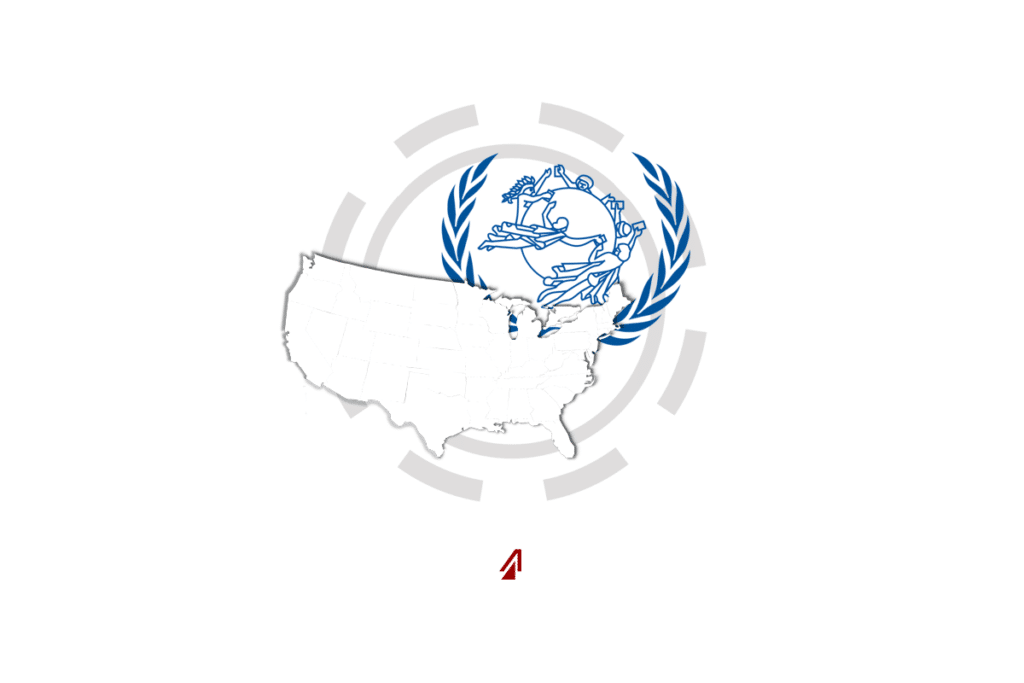In September 2019, the Universal Postal Union (UPU) convened its 3rd Extraordinary Congress in Geneva, Switzerland to discuss changing its terminal dues regulation policy. The United States did not approve the former policy and threatened to leave the union if that policy was not amended. (See Why the International Postage Imbalance & What We Can Do About It) The congress came to an agreement that was beneficial to all parties, and the U.S. will remain for the time being.
What Was the Former Policy
Before the UPU was formed in 1874, nations would negotiate postal rates with each other individually. Shipping was complicated and services, like mail delivery, were more difficult to undertake. The UPU helped make shipping simpler by streamlining operations – using global codes and standards for nations to adhere to when making shipments. One of its operations was to set terminal rates for each nation. These are fees that a sending country pays a receiving country for freight and postage processing costs.
In the 1960s, the UPU adopted a terminal rate policy to help developing nations create stronger economies. These nations were allowed to mail letters, packages, products, etc. to nations like the United States or Canada at 40-70 percent reduced cost in order to help spark their economic growth. The receiving countries made up the difference to their own postal services with taxpayer subsidies. This policy worked successfully and helped build several smaller nations’ economies.
However, some countries have moved beyond the “developing” classification and are now taking advantage of the UPU’s policy. Nations like China, who now boast the world’s second largest economy, are shipping their products to U.S. at a fraction of the shipment’s actual cost, leaving Americans to make up the difference. Earlier this year, Amazon’s Vice President of Global Policy, Paul Misener, remarked that it was cheaper to mail a product from Beijing to New York City, than from New York to South Carolina. Jeff Adams, a USPS spokesman, said, “The current system has led to the United States subsidizing the imports of small packages from other countries,” at a cost of nearly $300 million per year.
The Trump administration set out in late 2018 to make changes to the UPU’s policy and allow the U.S. to set its own terminal rates. Otherwise, it would remove the United States from the Union. They set an October 17th, 2019 deadline for the UPU to make changes or, as White House Trade and Economic Advisor, Peter Navarro, put it, “the U.S. will start self-declaring its rates soon after October 17 one way or the other.”
What Was the Agreed Regulation Change
The UPU’s 3rd Extraordinary Congress met in September 2019 to discuss options to amend the terminal rate policy. They considered three options – Options A, B, and C.
• Option A – offered minor terminal rate changes
• Option B – permitted all 192 UPU members to impose self-declared rates immediately
• Option C – permitted the U.S. to declare its own rates immediately and let other nations gradually update their own rates
Since 2018, the United States had been in favor of Option B and had had the support of 30 other nations at the 2018 UPU Ethiopian Congress. However, the current congress wanted to evaluate each option for its pros and cons. For example – Option A would only change policy slightly making it a safer choice but would not satisfy the U.S. – in which case they would leave the UPU; Option B would satisfy the U.S. but does not allow a phase-in period; and Option C would offer the U.S. what they wanted but would generate uncertainty for the future.
The congress finally settled unanimously on a compromise of Options B and C called “Option V.” UPU Director General Bishar Hussein called the decision “the most remarkable day in the history of the union,” and Navarro expressed that it was a victory for U.S. companies as well. Option V, for victory, allows the United States to declare its own terminal rates starting July 2020 and lets other nations follow in January 2021. This protects nations with smaller mail volumes from rapid rate adjustments and lets them get used to the new policy.
Why Is It Important
Many headlines today will read that the U.S. narrowly avoided “nightmare scenario[s]” by staying in the UPU. Some state mail coming to the U.S. will go undelivered or that U.S. stamps will not be recognized abroad. This is largely overstated.
The truth is that the U.S. staying in the UPU is a major convenience to other nations. The U.S. is one of the largest contributors to the UPU (only France and Great Britain match it) and leaving would make global shipping more expensive for everyone. Also, the U.S. leaving would have been disruptive as other upset nations, like Canada and Brazil, would have likely followed them. Some also saw leaving the UPU in October as a major disruption to e-commerce during a heavy shopping season as well as an interference with voting abilities for U.S. citizens living abroad.
So, the fact that the U.S. and UPU came to a compromise is a win-win. The U.S. can relieve a burden to its taxpayers by setting its own terminal rates, and the UPU benefits from U.S. funding and guidance. With this new deal, the U.S. should start seeing a level playing field, and that, as Navarro put it, is a “a victory for millions of American workers and businesses.”
Looking for supply chain spend savings?: LET’S TALK



